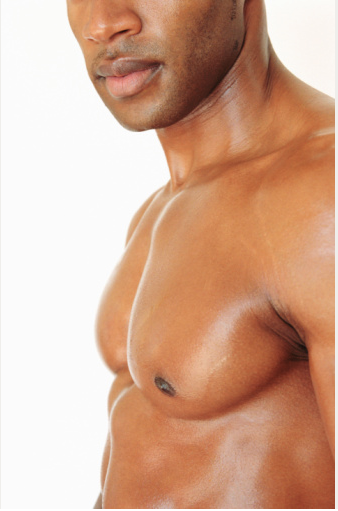 According to a new scientific study, blacks men’s adherence to masculinity may be a contributing factor to their inability to protect themselves during sex with males. Researchers from Boston Medical Center published their finding on Monday, May 2, at the Pediatric Academic Societies (PAS) annual meeting in Denver.
According to a new scientific study, blacks men’s adherence to masculinity may be a contributing factor to their inability to protect themselves during sex with males. Researchers from Boston Medical Center published their finding on Monday, May 2, at the Pediatric Academic Societies (PAS) annual meeting in Denver.
The lead author Errol L. Fields, MD, PhD, MPH explained why how he and the researchers came to their hypothesis regarding the consistent rise in new HIV cases amongst young black males. Young black males who have sex with males are five times more likely to be HIV-infected than white males of similar ages, Fields says.
“We interviewed young black men to hear the stories behind these statistics,” Fields explained in a statement released yesterday.
Thirty-five black males ages 18-24 years in New York City, upstate New York and Atlanta took part in semi-structured interviews that explored cultural and psychosocial factors that may influence how they choose sexual partners, assess HIV risk and decide whether to use condoms.
“We found that their beliefs about masculinity may affect their ability to protect themselves against HIV,” Dr. Fields said. “For example, many believed that men who acted more feminine were at greater risk for HIV than men who acted more masculine. These beliefs may have led to greater risk behavior with men who were perceived to be masculine because they believed these men were less likely to have HIV.”
In 2006, male-to-male sexual contact was associated with an estimated 63% of new HIV infections among black males. Data from CDC’s National HIV Behavioral System illuminate that, in 2008, 59% of HIV-infected black men who have sex with men (MSM) did not know they were infected, compared with 26% of white MSM.
According to the abstract of the presentation, researchers pinpointed a conflict in the men that centered around their perceived notions of homosexuality and it’s acceptance by their loved ones. Many study participants responded to this conflict by presenting a masculine public image in an effort to “fit in” and “camouflage” their homosexuality. They also expressed a fear of rejection from loved ones if they failed to “fit in.” Social acceptance and avoiding rejection seemed to be the principal motivations behind meeting masculine expectations.
This brings up too many questions that have deep cultural and racial undertones surrounding black men and sexuality.
Do you think attitudes toward masculinity play a contributing factor during sex of any kind?
Are you less likely to ask you partner to use a condom if he appears more masculine?
If you are a masculine man, does this mean you are less likely to want to use a condom during sex?






